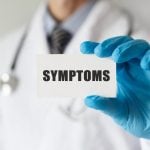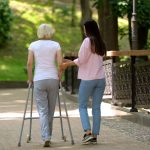
The American Parkinson Disease Association (APDA) has long been committed to providing the support, education, research, and community that...see more

The American Parkinson Disease Association (APDA) has long been committed to providing the support, education, research, and community that...see more

In the beginning….The first symptoms of Parkinson’s disease Dr. Gilbert discusses the common first symptoms of Parkinson’s disease

Advancing Parkinson’s Disease Research: APDA’s Commitment to Innovation The American Parkinson Disease Association (APDA) is committed to furthering Parkinson’s...see more

Navigating Independence with Parkinson’s Disease As a progressive neurodegenerative movement disorder, Parkinson’s disease (PD) comes hand in hand with...see more

The SPARX3 Research Trial Investigates How Exercise Helps Parkinson’s People with Parkinson’s disease (PD) are constantly being told, by...see more

APDA proudly invests in the most promising clinicians and scientific projects focused on the discovery of the cause(s) and...see more

The benefits of artistic activities for people with Parkinson’s Parkinson’s disease (PD) is a complicated and long-term condition that...see more

Dr. Gilbert describes the complicated world of genetic testing for Parkinson’s...see more

Inside APDA: Chapters, Centers, and Groundbreaking Research The American Parkinson Disease Association (APDA) is a nationwide network dedicated to...see more

Exploring Vision Changes in Parkinson’s Disease Insights from Dr. Gilbert Hosts with Dr. Janet Rucker Vision changes are a...see more
Simple Email Signup v2 (Salsa replacement form)